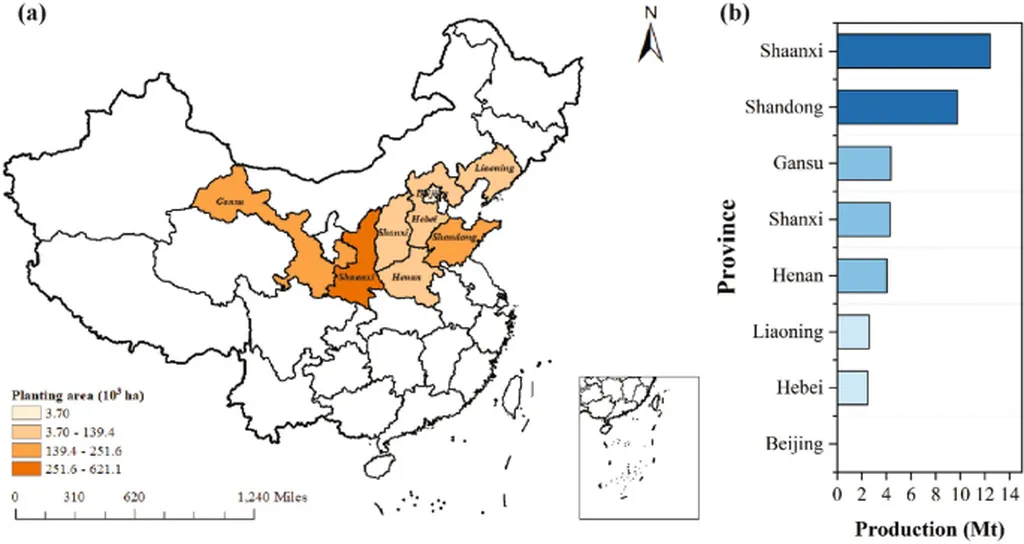In the heart of rural China, apple growers are navigating a complex web of technological advancements and financial constraints, reshaping the way they do business. A recent study published in *Frontiers in Sustainable Food Systems* sheds light on how access to credit influences technology adoption and contractual arrangements, offering valuable insights for the agriculture sector.
The research, led by Hongtu Deng of the School of Economics and Statistics at Guangzhou University, focuses on apple growers in Yiyuan County, Shandong Province. It reveals a dynamic interplay between credit capacity, technology choice, and contractual governance. “Our findings highlight a causal chain where credit capacity influences technology adoption, which in turn drives changes in contractual arrangements,” Deng explains.
The study identifies three key stages in this process. First, credit-constrained firms adopt labor-saving technologies incrementally, relying on high-monitoring-cost wage contracts. This confines them to low-efficiency equilibria, limiting their growth potential. Second, firms with greater access to credit implement integrated technologies such as smart irrigation, virus-free seedlings, and IoT systems. This shift enables them to transition to risk-sharing, incentive-compatible revenue-sharing contracts. Lastly, deep technology embedding increases asset specificity and collaborative interdependence, driving a shift from hierarchical to cooperative governance.
The commercial impacts of these findings are significant. For instance, the study suggests that activating land-use-right mortgages and cultivating endogenous rural financial systems could empower smallholders. This could foster their inclusion in sustainable agri-value chains, enhancing their competitiveness and resilience.
Moreover, the research underscores the importance of contract innovations associated with technology services. As Deng notes, “Technology reduces uncertainty and reconfigures factor bargaining power, facilitating contractual adaptation.” This insight could guide agribusinesses in designing more flexible and equitable contracts, promoting sustainable agricultural transformation.
The study’s findings also offer a systemic framework for understanding the co-evolution of institutions and technology in agriculture within developing countries. This could inform policy decisions and strategic planning, shaping the future of the agriculture sector.
As the agriculture sector continues to evolve, the interplay between technology, finance, and contractual arrangements will be crucial. This research provides a roadmap for navigating these complexities, offering valuable insights for growers, agribusinesses, and policymakers alike. By embracing these findings, the sector can move towards a more sustainable and inclusive future.

